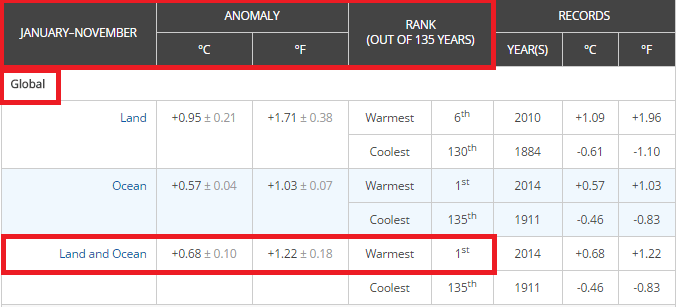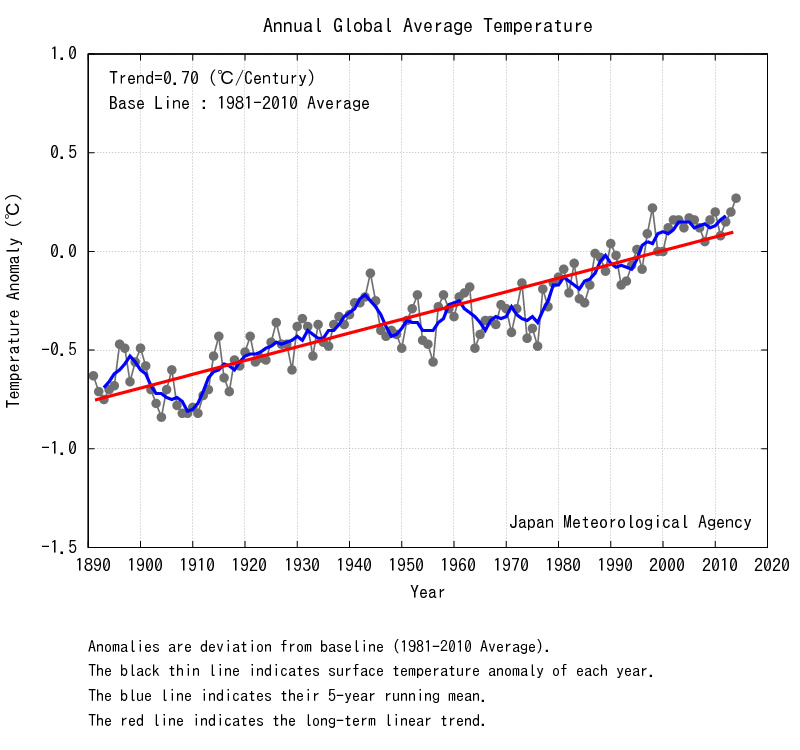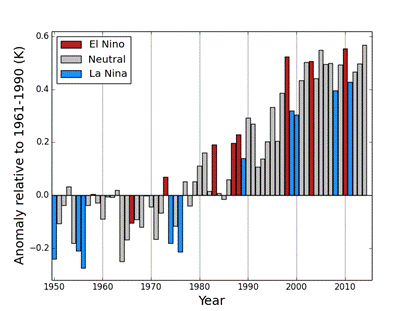NOAA and NASA about to call 2014 as warmest year?
The case that 2014 was the warmest year on record globally may be about to get confirmation from two separate major US science groups.
An inside source tells me NOAA and NASA will likely schedule a joint news conference late next week to confirm 2014 as the warmest year on record globally.
Both NOAA and NASA keep separate data sets on global surface temperatures, and are expected to declare the final December data puts 2014 in the top spot as the warmest year on record since 1880. The two organizations usually announce global temperature results separately online, so a joint news conference would be unusual.

NOAA's January through November data already showed 2014 ranked as the warmest on record globally through November.
Create a More Connected Minnesota
MPR News is your trusted resource for the news you need. With your support, MPR News brings accessible, courageous journalism and authentic conversation to everyone - free of paywalls and barriers. Your gift makes a difference.

Ironically Minnesota and much of the eastern United States experienced cooler than average temperatures in 2014. Minnesota's statewide average temperatures ran about -3 degrees vs. average in 2014. Minnesota was among the coolest places on earth relative to average last year.
The NOAA and NASA data will likely confirm the data set from The Japan Meteorological Agency, which has already declared 2014 as the warmest year on record.

The annual anomaly of the global average surface temperature in 2014 (i.e. the average of the near-surface air temperature over land and the SST) was +0.27°C above the 1981-2010 average (+0.63°C above the 20th century average), and was the warmest since 1891. On a longer time scale, global average surface temperatures have risen at a rate of about 0.70°C per century.

A source close to NOAA insiders tells me NOAA's 2014 global average temperature anomaly number will come at .67C warmer than the 20th century average. That would eclipse 2010, the previous warmest year on record which is at .66C.

Big picture
What does 2014 as earth's warmest year on record mean in the big picture?
2014 will surpass 2010, 2005 and 1998 as the three previous warmest years on record globally.

The UK Met Office will also weigh in on global temperature data for 2014 soon. Most observers expect that data to show 2014 will also be near or at the top of the global record, but may come in as the 2nd warmest on record by a hair.
Climate watchers correctly caution that one year is insignificant in terms of long term climate. But 2014 as the warmest year on record globally comes at a critical time in clear a longer term trend.
Consider these points.
14 of the 15 warmest years on record have all occurred since 2000. (WMO)
2014 record was set in an "ENSO neutral year (no El Nino present to help boost global temperatures)
2014 as the warmest year on record globally effectively ends the misleading notion of a "pause" in global warming
The fact that 2014 as the warmest year globally occurred in an ENSO neutral year is remarkable. Looking at the chart below, you can see that the recent global temperature rise appears to have overwhelmed ENSO cycles in general. Even in blue La Nina (cool) years, the earth has recorded some of the warmest years on record since the 1990s.

El Nino in 2015?
The clear parade of recent warmest years on record suggests that even with a borderline El Nino event, 2015 has a chance to surpass 2014 as the next "warmest year on record globally."
There is a very real chance climate watchers may be having this same conversation again in about 12 months.